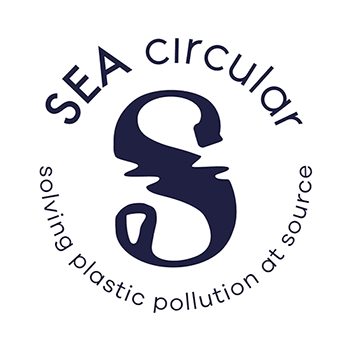
Side Event: Collective Effort in South-East Asia to End Plastic Pollution
UN OCEAN CONFERENCE 2022, LISBON, PORTUGAL
Event Date: 29 June 2022 at 8:00-10:00am (GMT +1) / 2:00-4:00pm (GMT +7)
Event Location: Virtual
Organiser: SEA circular project, United Nations Environment Programme
Co-organisers: The Coordinating Body on the Seas of East Asia (COBSEA), World Economic Forum Global Plastics Action Partnership (GPAP) and the Food Industry Asia (FIA) to leverage partnership and promote circular economy to tackle marine litter pollution in South-East Asia.
Introduction: Recognizing the devastating and irreversible impact of plastic pollution on ecosystems, the climate and livelihoods, a long-term inclusive solution to address plastic pollution require strengthening international coordination, cooperation, and governance. This has been clearly outlined in the 5th UN Environment Assembly (UNEA) resolution’s outcome to forge an international legally binding instrument to end plastic pollution.
In South-East Asian region, the momentum to end plastic pollution has picked-up despite the challenges of the COVID-19 pandemic. 175 nations voted unanimously for a legally binding instrument by 2024 to end plastic pollution during the UNEA 5.2 in March 2022. Nevertheless, a lot more must be done through collective initiatives in addition to the government efforts. This includes stepping up on activities, and adopt voluntary measures to combat plastic pollution, shifting to sustainable consumption and production, circular economy approaches, develop and implement national action plans, and improve statistical information on the environmentally sound management of plastic waste.
An ambitious global agreement will not be possible without the participation and commitment among the government, private sector and consumers. To gain better insights on plastic pollution from different stakeholders, the SEA circular project of UNEP has commissioned surveys in 2020 and 2022 to understand the perception of businesses and consumers on plastics and policies for circularity in South-East Asia.
The survey was conducted to assess the level of understanding of plastic pollution issues in Indonesia, Malaysia, the Philippines, Thailand and Viet Nam, countries that have showcased accelerated efforts to tackle marine litter pollution in the region. The study sought to understand business and consumer attitudes towards plastic waste, how they are currently tackling plastic waste issues as well as provide perspectives on how to best tackle these challenges collectively in a holistic manner involving different stakeholders.
About the event: In this virtual side event, we wish to hold a dialogue – a panel discussion, focusing on the theme – Addressing marine pollution, among the member states, intergovernmental organizations, regional platforms, think tanks, and private sector representatives on their continued collective efforts to tackle marine litter pollution, as well as to share the knowledge and findings of the survey.
Objectives:
- To bring together stakeholders from the government, the private sector, and consumers representative to collectively address plastic pollution in the Southeast Asia region and encourage collaborative partnerships to end plastic pollution in the region
- To discuss the way forward towards the Global Plastic Agreement and preparation for the intergovernmental negotiations
- To share knowledge of existing initiatives through strategic partnerships on addressing marine plastic pollution in the South-East Asian region
- To share results of the plastic perception survey commissioned by UNEP’s SEA circular project, to gain insights into perception of consumers and businesses towards plastics, its usage and efforts to achieve circularity
Expected outcomes / results:
- Stakeholders, government, business, private sector, consumer, youths, etc., are better informed on key initiatives and regional efforts to address plastic pollution, especially, in the South-East Asian region
- Stakeholders are aware about plastic concerns of different stakeholders to enable informed planning and policy making in South-East Asia
- Promoted collective actions of different networks’ regional frameworks to have an interconnected approach to addressing plastic pollution in South-East Asia
- From sharing of good examples of efforts by the private sector, to encourage growth of momentum in private sector led efforts
Event Registration
Registaration closed.Useful Information
- Please note that all event participants are required to register before joining the webinar.
- Please click here to download the Cisco Webex Client.
- When logging-in to the webinar, please use the same email address you used when registering.
- If required, please use the following credentials when joining the webinar.
- Webinar number: 2551 020 7385
- User email: The email address you used when registering to the webinar
- Webinar password: 9GAc3jNFTF9
- If you need any assistance with registering or joining the webinar, please contact us at sea-circular@un.org
The UN Environment Programme’s SEA circular project organized a virtual side event at the UN Ocean Conference 2022 on 29 June 2022 to address plastic pollution and discuss the way forward to tackle plastic pollution in the South-East Asian Region through collaborative actions.
310 participants attended the event from different regions with different backgrounds including academia, businesses, private sector, development sector, consumers and government representatives and actively participated in the discussion on tackling plastic pollutions.
This 2-hour live virtual event brought together speakers and panelists from ASEAN members states, private sector and development partners who are addressing plastic pollution in their respective areas. A survey findings on the perception of consumers and businesses towards plastics were also presented while some good practices from the food & beverage sector were also shared in this event.

Read the post event report here.
For any follow-up, reach out to sea-circular@un.org or visit www.sea-circular.org
Events













